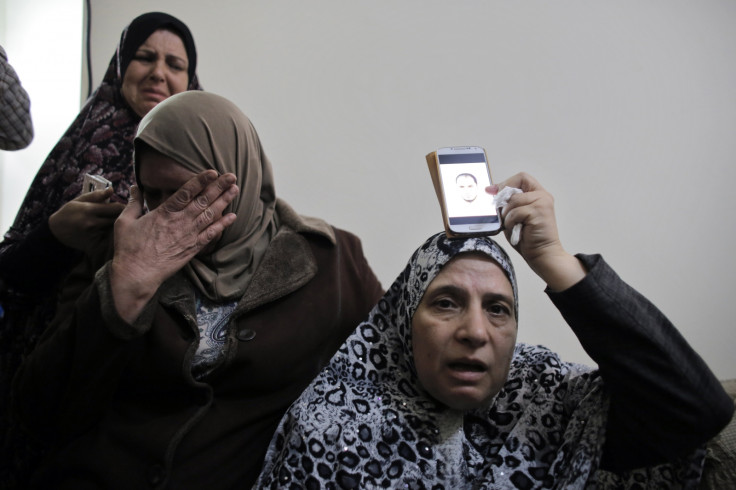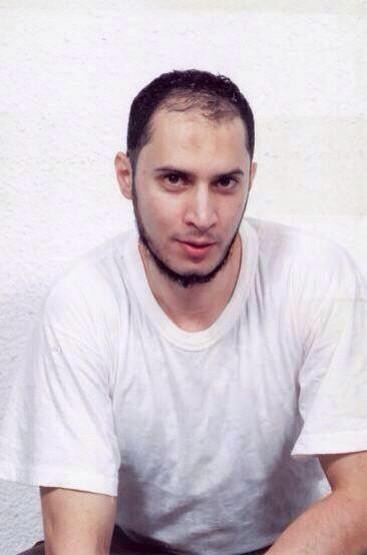Moataz Hejazi: Rabbi Settler's Polite Assailant Worked at Begin Center as a Waiter

The suspected shooter of hardline Jewish activist Yehuda Glick was a convicted member of the Islamic Jihad who pledged to be a "thorn in the throat of the Zionist plan to judaize Jerusalem".
Moataz Hejazi, 32, who served 11 and a half years in prison for so-called "nationalistic crimes" and was released three years ago, was shot dead by Israeli security forces near his house in the Abu Tor neighbourhood of occupied East Jerusalem. Witnesses reported seeing Hejazi's body lying in a pool of blood on the rooftop of his three-story house.
He is believed to have attacked American-born right winger Yehuda Glick in a drive-by shooting as he left the Begin Centre in Jerusalem, where he was attending a conference lobbying for greater Jewish access to Jerusalem's holiest site - known to Jews as Temple Mount and to Muslims as Haram al-Sharif (the Noble Sanctuary).
An eyewitness described the moment of the shooting: "I stood next to him. The conference was over and he went outside to load his car.
"Next to it stood a Palestinian motorcyclist wearing black. I saw his gun and I yelled to the woman with me ... We started running. The Palestinian said to him: 'Sorry, I have to do this,' and shot him."

The Palestinian activist, who left the scene on his motorcycle, said on al-Quds TV upon his release that the "Palestinian people in Jerusalem suffer from daily harassment but despite that they continue to stand strong".
"I wish to be a thorn in the throat of the Zionist plan to Judaize Jerusalem," he added.
Hejazi worked in a privately-owned restaurant within the Begin Centre and reportedly passed a background check before being hired.
"The restaurant does not belong to the Begin Centre, so we have no idea about the personal details of the man, but we do know that people who work in the restaurant have to get a background check from the police first," the centre's spokesman Ofer Inbar said.
"And we know that the owner of the restaurant got the OK to hire him."
Police tracked him down after spotting his motorcycle outside his house in Abu Tor. He was reportedly killed after an exchange of fire with Israeli security forces.
After the attempted Glick assassination, Israel sealed off the Al-Aqsa site enraging Palestinians and causing their president Mahmoud Abbas to say that the closure of Islam's third holiest site was "almost a declaration of war".
Hejazi's father and brother were arrested and detained for questioning. The killing of the Palestinian activist angered local residents who shouted insults at Israeli police.
Far-right groups rallied in the streets of Jerusalem and urged supporters to march on Al-Aqsa, prompting Israeli authorities to seal off the place.
The Al-Aqsa compound is one of the most contentious areas for the Israeli-Palestinian conflict. The hilltop holy site is Islam's third holiest site and holiest place in Judaism.
The site has been administered by an Islamic Waqf (trust), under the authority of Jordan, since the crusades, while Israel has controlled access to it since the occupation of East Jerusalem in 1967, also implementing a ban on all non-Muslim prayers as a security measure - something Glick wanted to change.
The site has recently been stormed several times by Jewish extremists, who in some cases raised an Israeli flag over it.
The Second Intifada in 2000 began after a visit by the late ex-PM Ariel Sharon to Temple Mount.
Slain Pal shooter of right-wing settler activist in '12: "I will be a thorn in the throat of Zionist plot in J'slem" https://t.co/sfdlBH7ZlA
— Noah Browning (@sheikhNB) October 30, 2014
© Copyright IBTimes 2025. All rights reserved.




















